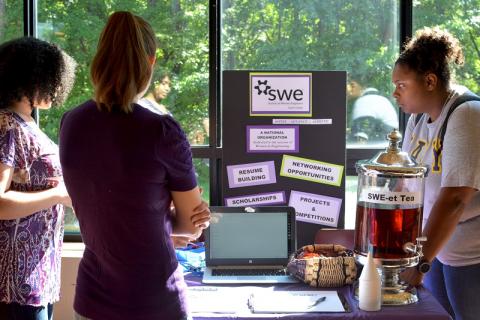Boost Your Skill Set Through Student Clubs
June 1, 2018By Sarah Alspaw, Director of Career Development and Student Success
Here at Capitol, we're very proud of all of the clubs and activities that our students participate in. They add fun and vibrancy to the campus experience and enable students explore a variety of interests, whether social, creative, athletic, or technical.
Not only that, but clubs and activities provide a way to develop additional skills that will strengthen a resume – particularly when students know how to convey the value of these experiences to prospective employers.
With some clubs at Capitol, this is straightforward, because the focus is on activities where there is a clear, easy-to-see correlation with plans for work after graduation. Cactus I, VelcroSat, and the other CubeSat and balloon payload teams are actually building and launching. The Cyber Battle Team is actually penetration testing and protecting assets. The Robotics Club is actually building robots. It is easy for students to explain in an interview exactly what they are learning from these types of activities.
It can be a little bit tougher for other types of clubs. These clubs’ activities have significant value too, but it's not as immediately obvious to the uninformed observer. But don't be discouraged! What this means, in essence, is that students involved in these activities must learn to be effective communicators. It is up to you to articulate and identify the skills you are gaining.
There are leadership clubs on campus, such as S-Lab, where students learn a variety of skills including, but not limited to, leadership, teamwork and collaboration, communication skills, and event planning. These skills can also be gained by serving as president, or in another cabinet position. Club secretaries learn budget planning, prioritization, effective written communication, and interdepartmental collaboration.
Founding a club, no matter what it is about, can demonstrate initiative, an entrepreneurial spirit, and an ability to understand and navigate bureaucratic regulations. Founders must also think through strategic vision when establishing, advertising, and building new clubs.
Even just being a member of a club requires an ability to work effectively with your peers. It requires oral and sometimes written communication skills, teaches students professionalism, and inevitably, provides an opportunity to practice effective conflict management.
These experiences are great for answering behavioral questions in an interview. I’ll be back next month to blog about what behavioral interview questions are, and how to answer them effectively in a short amount of time.



